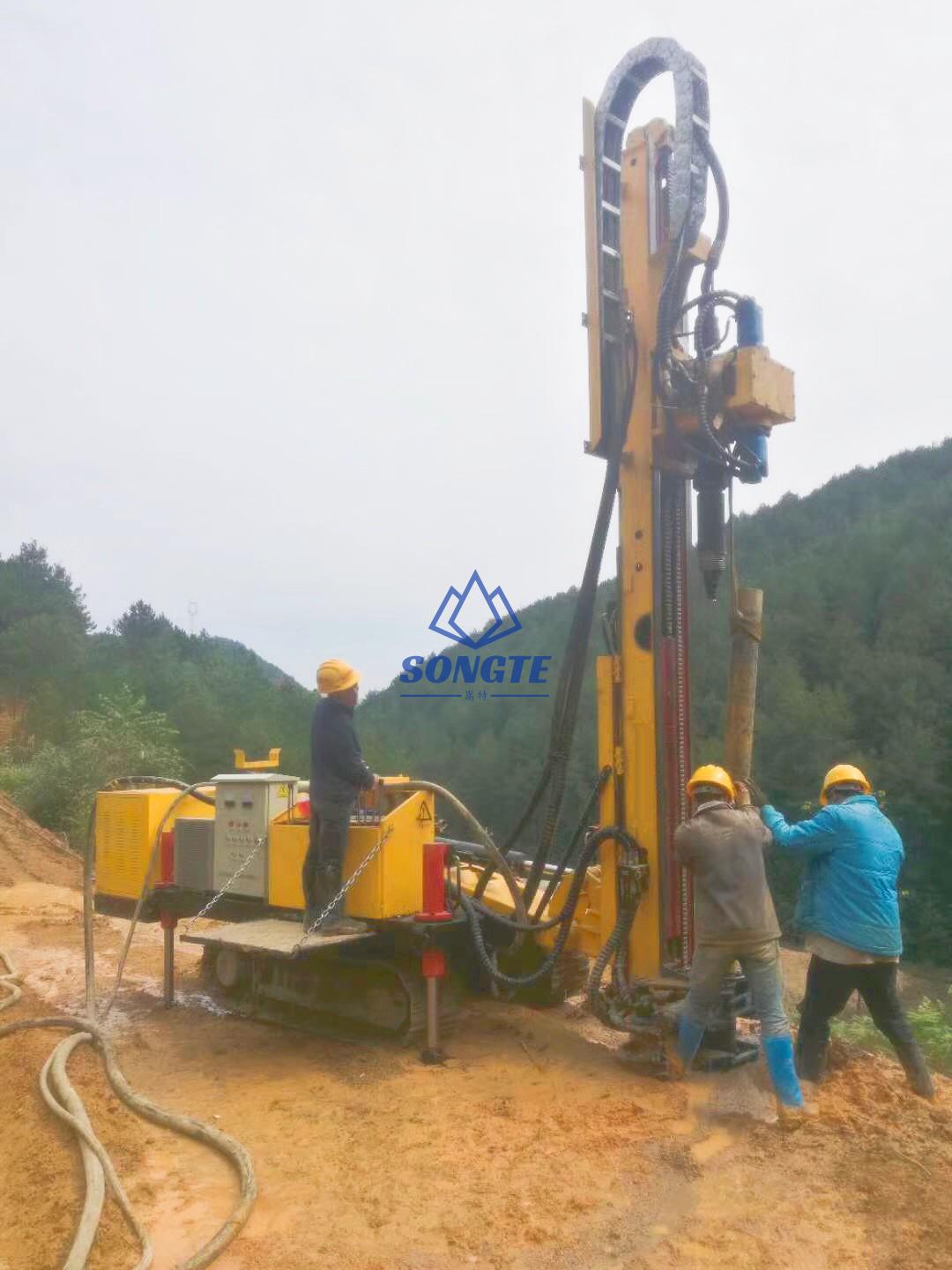استكشاف الأنواع المختلفة من منصات الحفر المستخدمة في الهندسة الجيوتقنية
Geotechnical engineering is a branch of civil engineering that focuses on the behavior of earth materials, such as soil, صخر, and groundwater. This field is crucial in the construction of various infrastructure projects such as buildings, roads, الكباري, الانفاق, سدود, and more. One essential aspect of geotechnical engineering is drilling, which is used for site investigation, foundation construction, soil reinforcement, and more. في هذه المقالة, we will explore the different types of drilling rigs used in geotechnical engineering.
An anchor bolt drilling rig is a type of rig used to install anchor bolts in geotechnical applications. Anchor bolts are used to stabilize slopes, foundations, and underground structures. This rig is equipped with a hydraulic hammer or rotary drill bit and is commonly used in mining, الهندسة المدنية, and construction projects.
Geotechnical Drilling Rig
A geotechnical drilling rig is a versatile rig that can be used for a range of geotechnical applications, including soil investigation, rock coring, and environmental testing. These rigs are typically mounted on tracks or wheels, making them highly maneuverable on different types of terrain.
Soil Nailing Rig
Soil nailing rigs are used to install soil nails, which are structural elements used for soil reinforcement. The rig is equipped with a drilling unit, which is used to create boreholes in the soil, and a grouting system to inject grout into the hole to create the soil nail. Soil nailing is commonly used in slope stabilization, excavation support, and tunneling.
SA-180A جهاز حفر مرساة هيدروليكي كامل متعدد الوظائف 180 م

Micro Pile Drilling Rig
Micro piles are small diameter piles used for foundation construction in difficult or limited access areas. Micro pile drilling rigs are specially designed to drill these small diameter piles, which are typically less than 300mm in diameter. The rigs can be mounted on tracks or wheels and are commonly used in building foundations, تثبيت المنحدر, and bridge construction.
Grouting Drilling Rig
Grouting drilling rigs are used to inject grout into the soil or rock to improve their mechanical properties, such as strength and stability. Grouting is used in a range of geotechnical applications, including foundation construction, soil stabilization, and tunneling.
Injection Drilling Rig
An injection drilling rig is used to inject chemical or cementitious grouts into the ground to improve soil properties or fill voids. These rigs are commonly used in soil stabilization, foundation repair, and environmental remediation.
Crawler Drilling Rig
Crawler drilling rigs are highly mobile rigs that can traverse rough terrain and difficult access areas. These rigs are equipped with crawler tracks, making them ideal for drilling in remote locations or on uneven surfaces. Crawler drilling rigs are commonly used in geotechnical exploration, soil sampling, and rock coring.
Foundation Drilling Rig
A foundation drilling rig is used to create deep boreholes for foundation construction. These rigs are typically larger than other drilling rigs and are equipped with high torque rotary drills for drilling through rock and hard soil layers. Foundation drilling rigs are commonly used in building construction, بناء الجسور, and infrastructure projects.
Hydraulic Drilling Rig
Hydraulic drilling rigs are equipped with hydraulic systems to power the drilling process. These rigs are typically highly maneuverable and can be used in a range of geotechnical applications, including soil sampling, foundation construction, and rock coring.
Rock anchor drilling rigs are used to install rock anchors, which are structural elements used to stabilize rock slopes or underground structures. These rigs are typically equipped with rotary drills or hydraulic hammers and are used in mining, الهندسة المدنية, and construction projects.
ختاما, drilling rigs play a critical role in geotechnical engineering, and there are various types drilling rigs, choosing the right drilling rig is critical to the success of your construction project.
 سونغتيمان
سونغتيمان
